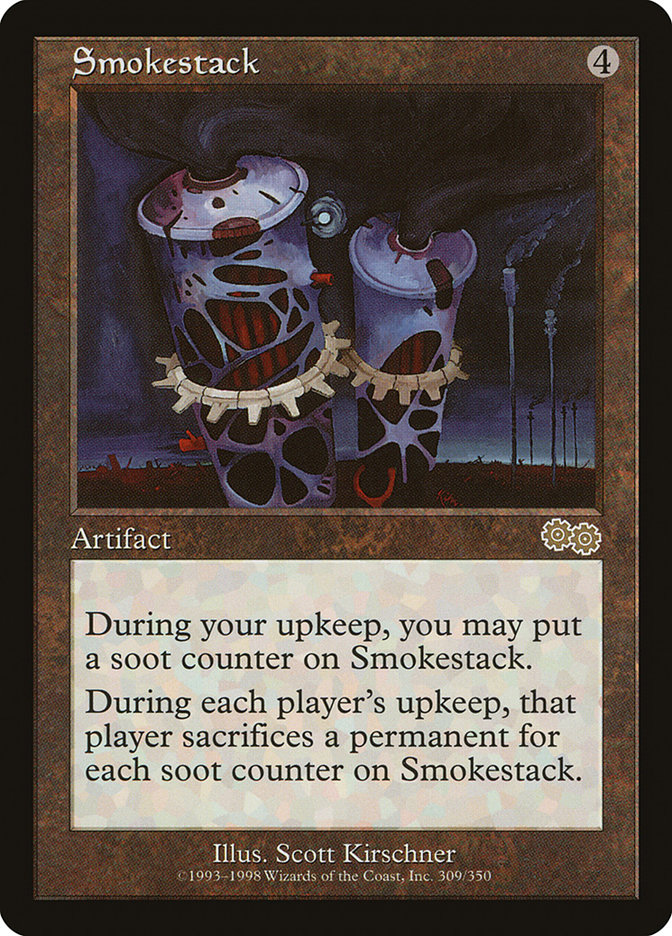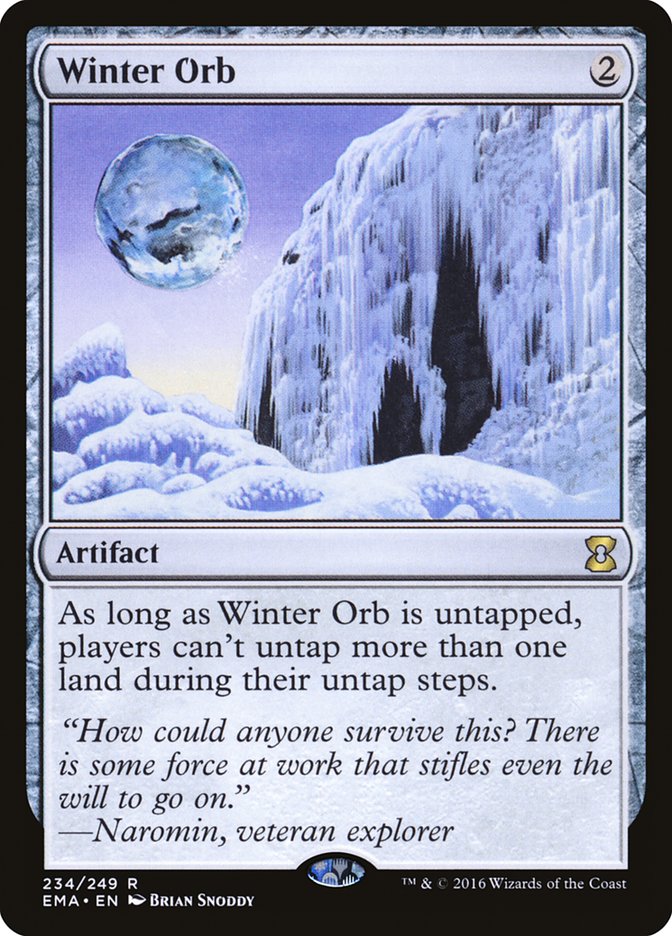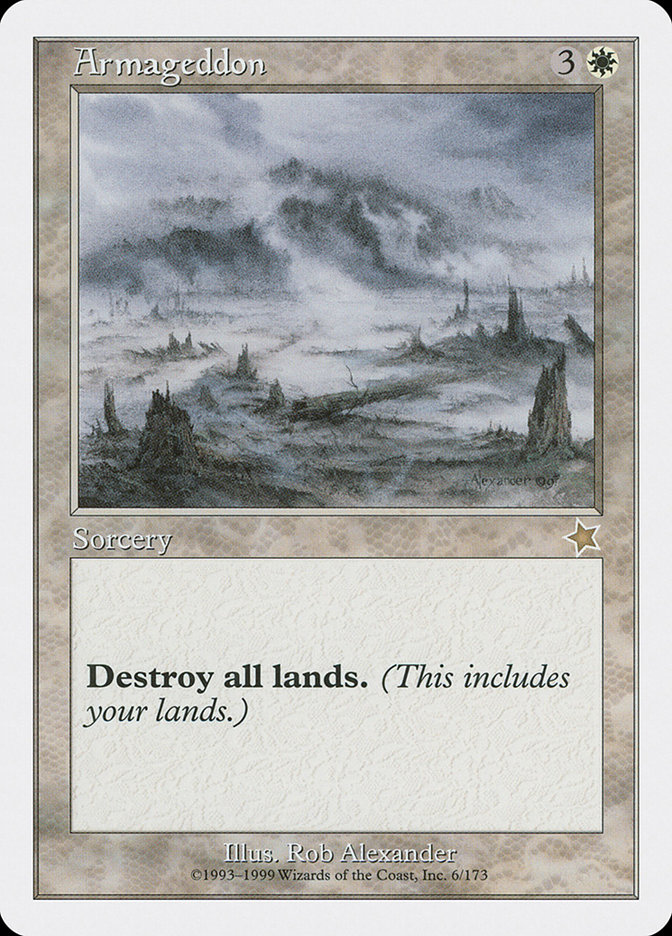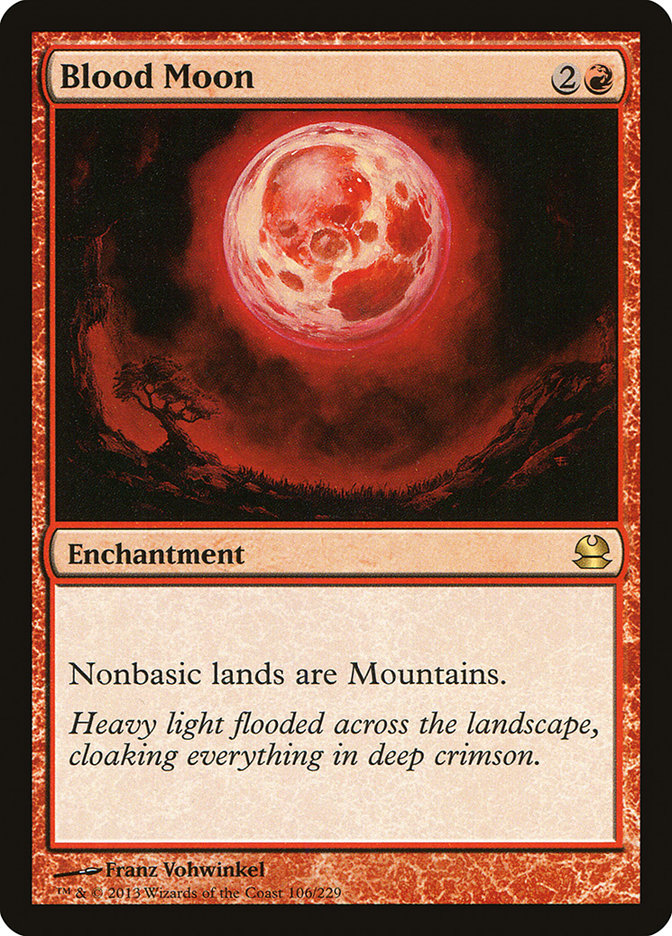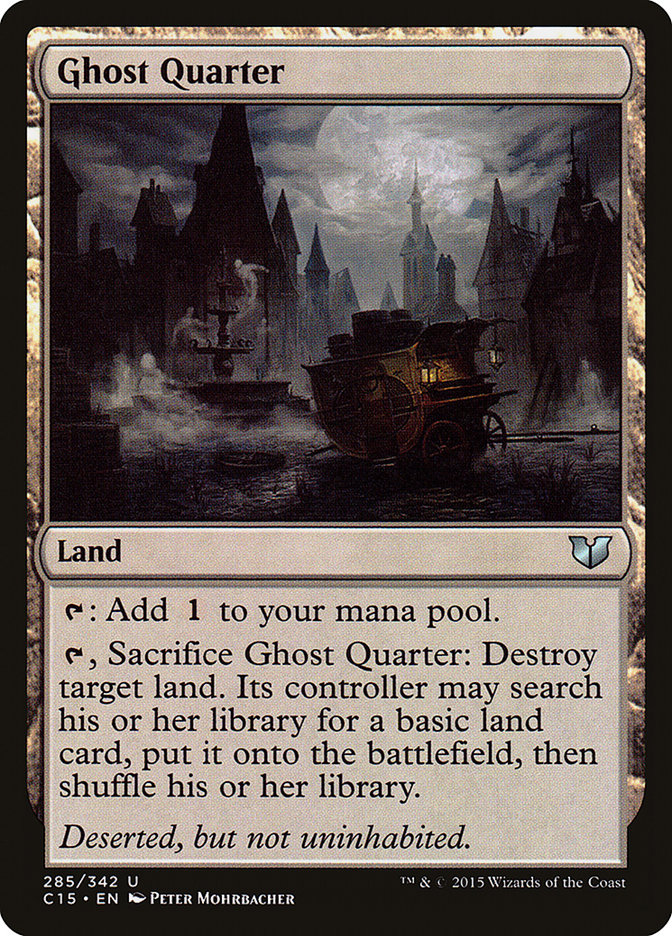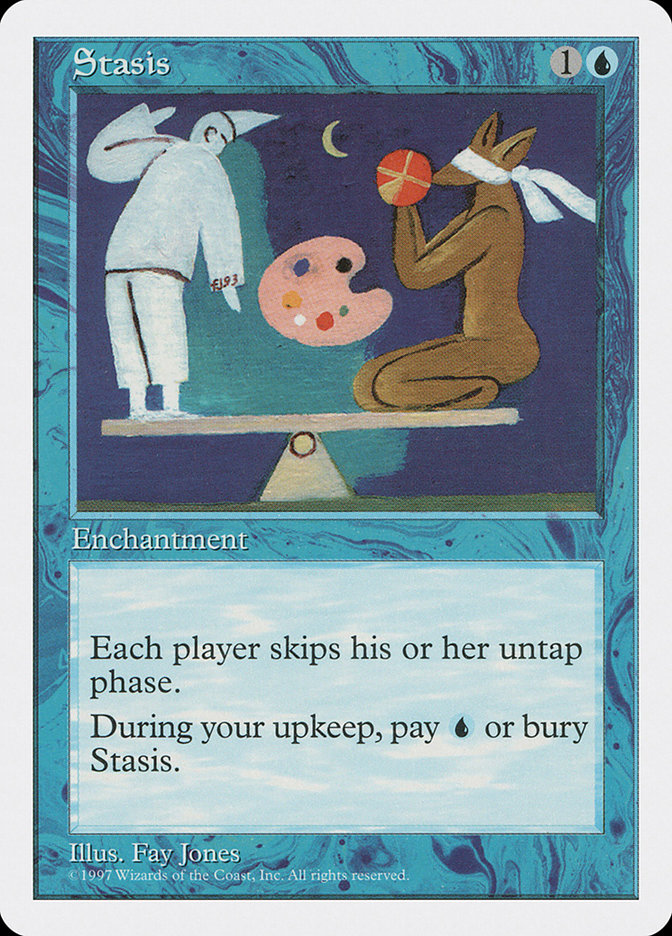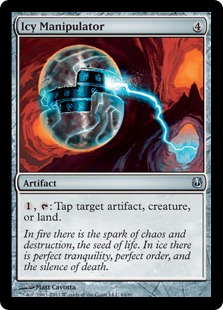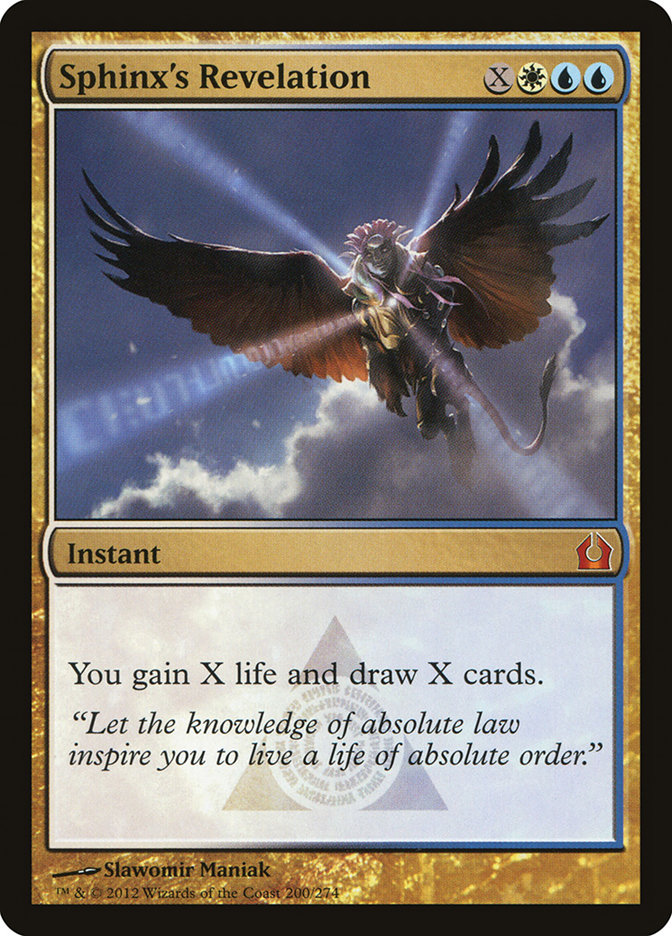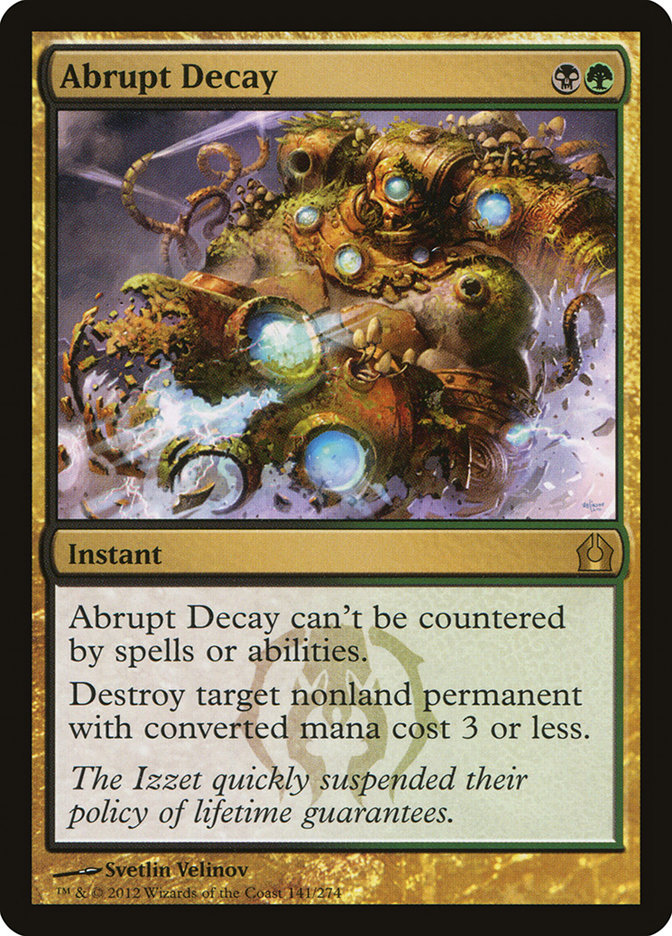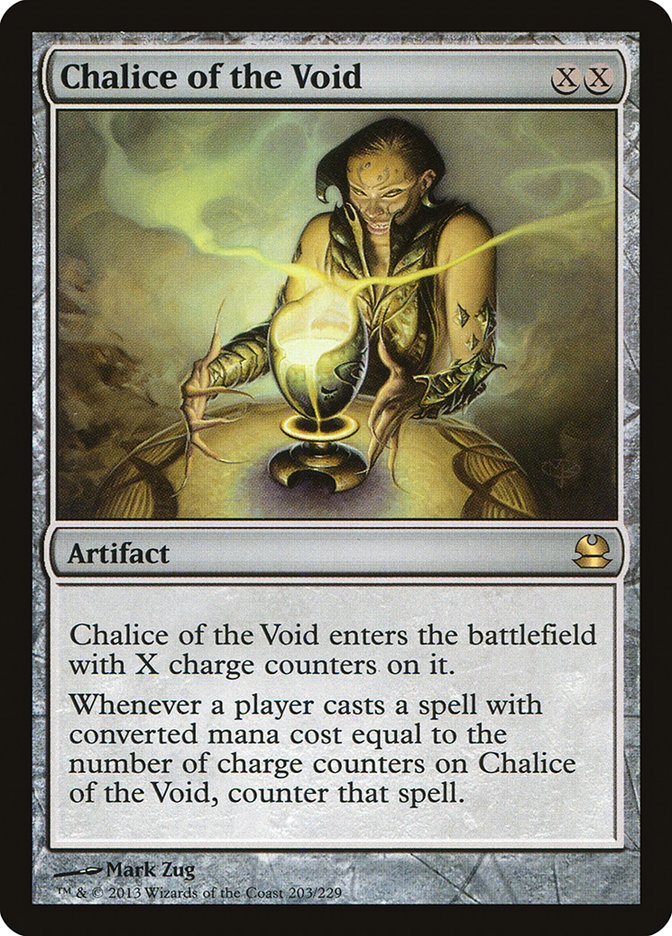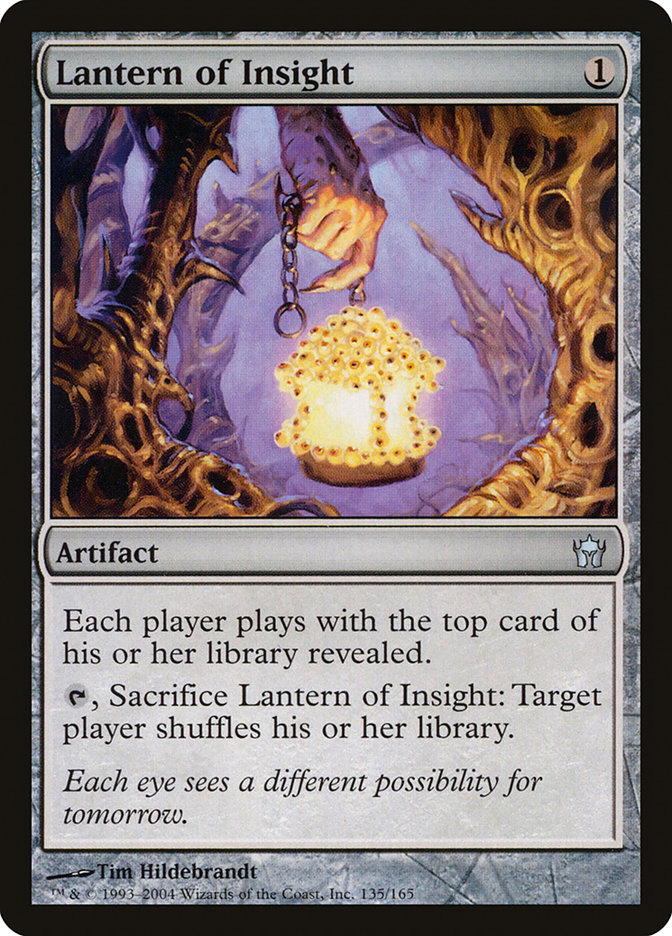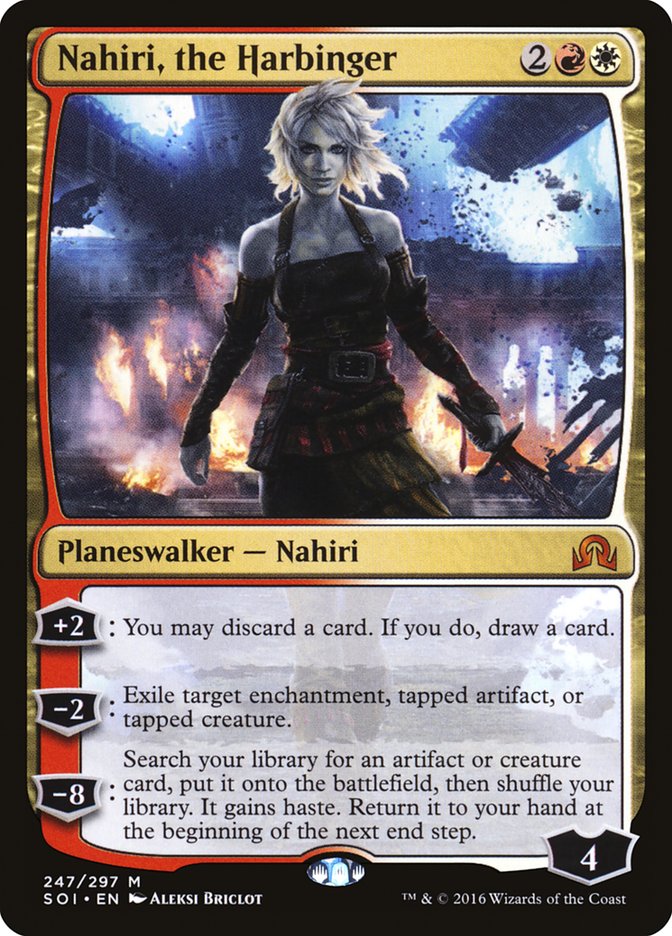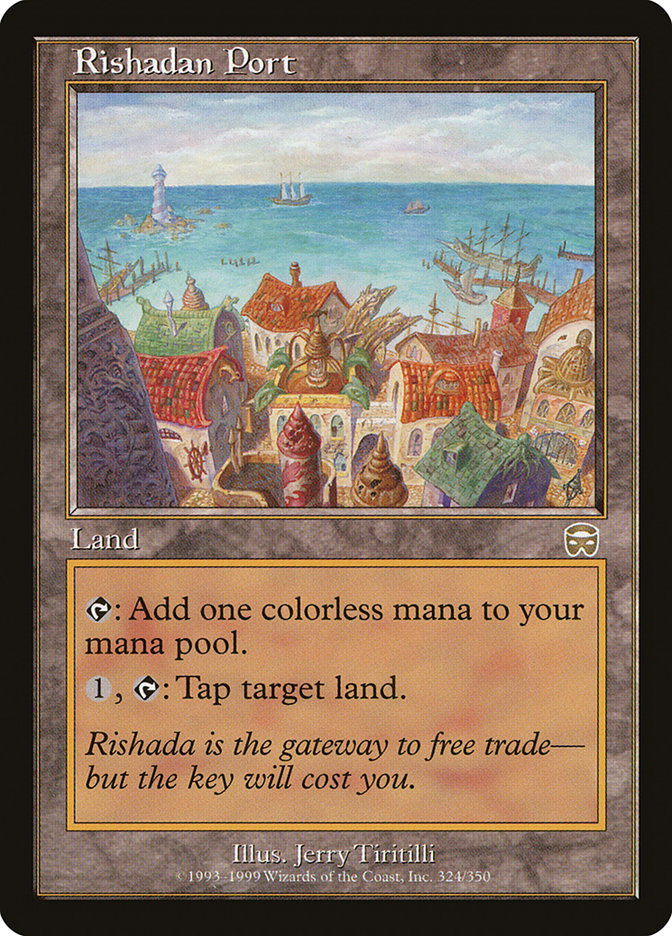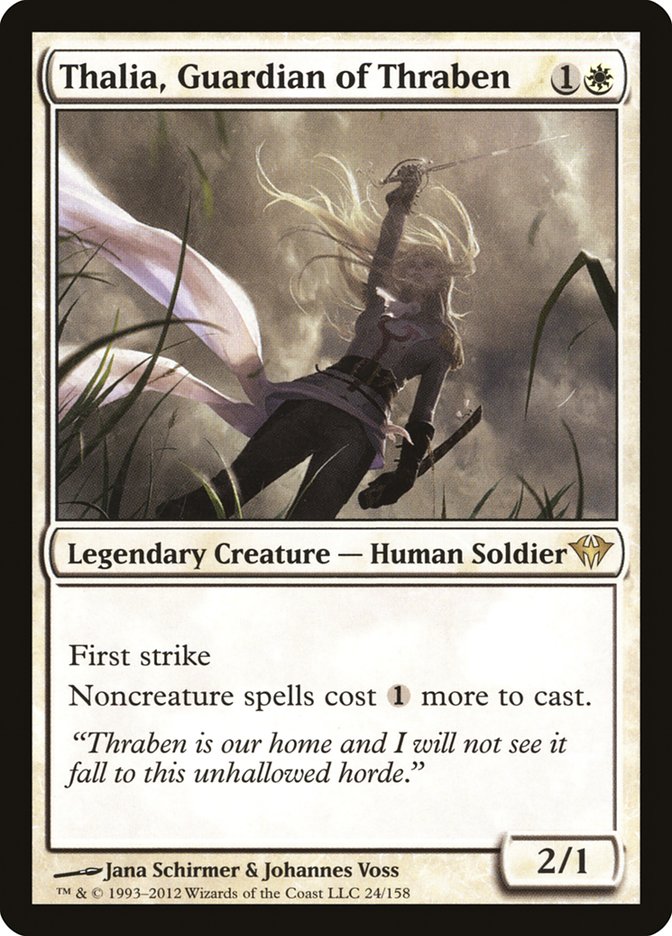Sometimes, out of simplicity, these decks get labeled “X Control.” But while Prison decks tend to be controlling (in the sense that they attempt to suppress the other player’s attempt to win), Prison decks have something important about them that is different: they attempt to reduce the value of any opponent’s play to zero (or near-zero).
In a sense, this makes Prison the ideological opposite of Combo. Whereas the super-archetype of “Combo” tries to assemble something that we can think of, abstractly, as having an “infinite value,” Prison, on the other hand, tries to suppress what is going on from the opponent such that nothing they do matters at all.
Combo decks we’re accustomed to thinking about, whether it is Kiki-Chord or The Perfect Storm or Bomberman or High Tide, or really any deck that does something bonkers. “Infinite Faeries! Infinite Faeries!” Combo is fun for a lot of people, and while still another category of people doesn’t enjoy that maybe their opponent did something that went over-the-top of the thing they might have been doing, Combo’s haters are few in number to Prison’s haters.
That’s the nature of the beast.
Prison doesn’t want people to have fun. Prison, of every stripe, basically says, “Hey – how about you stop playing Magic.”
“Fun!”
In current Magic, there are probably two Prison decks that people are most likely to know.
Creatures (14)
Lands (21)
Spells (25)

Creatures (3)
Lands (17)
Spells (40)
- 4 Ensnaring Bridge
- 4 Lantern of Insight
- 2 Pyrite Spellbomb
- 3 Pithing Needle
- 2 Thoughtseize
- 4 Ancient Stirrings
- 4 Inquisition of Kozilek
- 4 Mox Opal
- 2 Surgical Extraction
- 4 Ghoulcaller's Bell
- 2 Abrupt Decay
- 4 Codex Shredder
- 1 Ghirapur Aether Grid
Sideboard

These decks actually happen to share a single card in common, which is impressive given that one of the two decks is Modern and the other is Vintage:
This is in part because Ghost Quarter is the best “Wasteland” effect that you can get in Modern, while in Vintage, you can actually just run four copies of Wasteland, but the deck itself wants more of that effect.
So what are the differences between these decks and simple control decks, practically speaking?
Not Control, But Prison
If we want to talk about things in colloquial terms with simple English, the difference between the kind of “control” we’d find in a Control deck and the kind of “control” we’d find in a Prison deck, the difference is in the degree of what you hope to control. If a Control deck is maybe brushing up against a degree of control over the state of the game we might jokingly call “fascist,” the Prison deck is closer to a totalitarian state, exerting utter control over everything. The politically-minded of you can think of it as the difference between government regulation and lockdown control over every aspect of life.
At their heart, Control decks want to have answers to problems. The Prison deck wants your opponent to have no choices (or false choices).
Classically, Prison decks don’t have to get you to a point where you can make no plays, but they do want you to get to the point where you make no plays that matter. Conversely, a Control deck might hope that it can answer your cards, but it isn’t necessarily setting up a situation where you are entirely making every play pointless. Take this next pair of decks from my past as points of comparison:
Creatures (1)
Planeswalkers (5)
Lands (26)
Spells (28)

This deck is setting up a long loop of control, and it can absolutely get out of the realm of danger by building up mana, drawing cards with Sphinx’s Revelation, and doing it again with Elixir of Immortality to a point where it likely to be under any threat of death and has copious answers to any possible ability of an opponent to threaten it. That state of the game, where you have essentially set up a “realm of safety,” is different from the kind of control that comes out of Prison.
Take this deck as a counterexample:
Lands (22)
- 22 Island
Spells (38)
- 2 Stroke of Genius
- 4 Force of Will
- 3 Propaganda
- 4 Stasis
- 4 Impulse
- 2 Boomerang
- 4 Gush
- 2 Daze
- 2 Foil
- 4 Thwart
- 1 Misdirection
- 2 Back to Basics
- 2 Spellbook
- 2 Claws of Gix
Sideboard

Stasis, all by itself, creates a game situation where gameplay stops. Theoretically, Stasis isn’t just symmetrical, but oppresses the person playing the Stasis even more than the opponent of the Stasis. Technically speaking, Stasis literally takes out more on the person playing it than the opponent, but of course you can build your deck completely around the idea of breaking that symmetry, whereas your opponent is unlikely to have much to do to stop the oppression the Stasis represents.
While some Prison decks oppress gameplay by making it (nearly) impossible for an opponent to play cards and others make a web of permanents that negate potential plays, Stasis largely maintains control by making the very few spells that can be played by the opponent fruitless because a counterspell stops them, and then by the time the next relevant spell can be played, there is yet another counterspell. Stasis (and cards like Winter Orb) make the ability to even play spells be so constricted that this strategy works.
These days, this plan is much, much harder to pull off.
A deck like Florida Orb, one of the most dominating decks of all time, probably would struggle with a card like Abrupt Decay but ultimately could potentially push through, because even though Abrupt Decay exists and can’t be countered, there are so many effective copies of the cards Florida Orb needs to establish its soft lock, and so few cards that a deck like it would give a damn about, it might actually still be a functional deck if it could just be ported from the past to the present.
Lands (21)
Spells (39)

Prison Now
I bring up current Prison mostly because of Modern. I played Lantern Prison (I’ll call it that instead of ‘Lantern Control’) at #GPCharlotte, and I loved it. [I dubbed the first version of this deck to surface at an IQ a year or two ago “Lantern Lock.” I’m sad it didn’t stick. – Ed.]
Ultimately, I made too many errors for such an unforgiving deck, and I didn’t end up with nearly as much success as I was shooting for. I’m happy to have a positive record, but I would have done much better if I hadn’t made mistakes.
Leading into the event, I was strongly thinking about Mardu Nahiri, and even built a private little Facebook group to explore the deck. I didn’t end up taking it to the GP, in large part because I was unhappy with having to fight so hard to win certain common grinding matchups. But as I was working away at it, of course something had to spin me on my head.
Creatures (5)
Planeswalkers (9)
Lands (25)
Spells (21)

Here, we have one of the most common ways to go about establish the “un-fun” of a Prison deck, and then the second most common way:
While I personally love playing the kind of Magic that demoralizes an opponent and strips away all of the fun, most people absolutely loathe not being able to play their spells.
I couldn’t help it – I had to take it for a spin, and in so doing, decided that right now, this moment, might be a great time to play the kind of Magic where people aren’t going to play Magic, directly leading me to play Lantern of Insight at the Grand Prix.
I think this build of Prison, based on Blood Moon and Chalice of the Void, is an utterly valid way to think about locking out games. These two cards are probably going to be at the cornerstone of any strategy in Modern that involves locking out the game.
One of the most incredible things about this strategy in Modern is that Nahiri, the Harbinger actually fits the plan incredibly well, and with a minimum of investment necessary. In my experience, playing Prison decks that establish a number of cards that lock out the relevant plays off the opponent can often get into a Game 1 situation that can be simplified in this way: you draw too many cards that don’t matter against this opponent and you can’t kill them quickly enough once the game is either hard- or soft-locked.
Nahiri actually completely solves both aspects of this problem.
It’s almost poetic that Nahiri, the Harbinger leads so naturally into Emrakul, the Aeons Torn. I almost feel as though there is a bit of Nahiri-overload after the last week, but that doesn’t change the fact that Nahiri, the Harbinger is an absurdly frightening card in Modern. Taking up four to five slots in a deck can be a lot, but, the effect is game-ending.
One of the things I don’t particularly care for about Pellman’s build is that there aren’t a few more aspects to the deck that help create lock-out situations. For me, I look at Pellman’s deck, and I immediately want to fit in some of the cards I love to see in a Prison deck. Crucible of Worlds and Ghost Quarter are incredible in Modern, and I’d also shift away from Wrath of God to Terminus, but whatever the case may be, I do think there is a reason Pellman made Top 8 in a tournament with about 700 players.
To me, the big Prison deck of Legacy is a sneaky little Prison deck, Death and Taxes, which, despite not being White Weenie, tricks people into imagining that it is. There is a reason that Thomas Enevoldsen, Michael Bonde, and other European experts of the deck are so insistent on calling it “White Control” (though even that is a little off).
Legacy is an utterly huge format, and you can basically see the hallmarks of Legacy Prison in Death and Taxes in the form of mana control (in Thalia, Wasteland, and other cards), but there really isn’t much in the way of successful Legacy Prison otherwise. A part of it is that the format is just so powerful that nearly every deck that might have some Prison elements often ends up shifting such that it ends up in a combo form, or even just a purer true-control deck.
Vintage and Standard have wildly opposing states with Prison. In Vintage, Stax is, to some minds, the deck to beat. It was even moreso the case before the restriction of Chalice of the Void, but it still is a huge powerhouse. Conversely, in Standard, Wizards has so neatly cut off options that allow the oppression that Prison represents, we haven’t seen anything that fits this mold in quite a while.
Right now, I’m in a place where Charlotte made me incredibly excited about Prison as an umbrella archetype and I expect I’m going to be focusing on exactly why I lost each match that I lost at that Grand Prix. Nearly every loss felt like it was from a mistake, and while I know that much of Modern feels like that, it made me excited to just knuckle down and start doing the work to truly intimately know the deck to the point where I stop throwing away matches.
As far as next events, if you’re out in the tournament world, I’ll see you at #GPMinneapolis – I hope I see you there this weekend!


